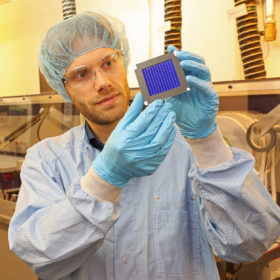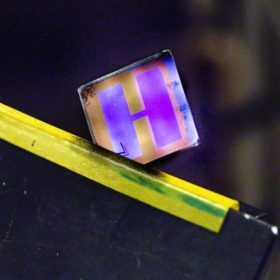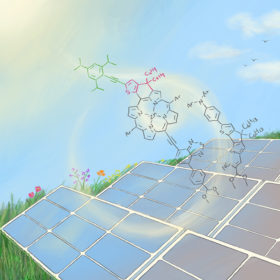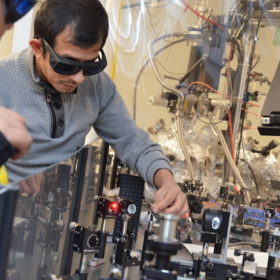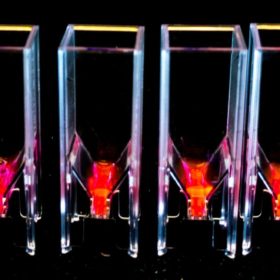Exeger and ABB to build ‘light harvesting material’ fab in Sweden
Swedish company Exeger says the dye-sensitized ‘light-harvesting material’ it will produce at its facility will generate enough power to prevent the need to recharge portable electronic devices, lengthening battery lifespan perhaps indefinitely.
Germany sets new record for organic PV efficiency
Scientists from several German research institutes, as well as South China University of Technology, have set a new efficiency record for an organic PV module. The group demonstrated a 12 cell, 26cm² module with an efficiency of 12.6%. The results have been confirmed by the Fraunhofer Institute for Solar Energy Systems.
An organic solar cell for indoor light
A Swedish-Chinese research team has developed an organic cell said to be ideal for wide use in daily life to power internet of things-enabled devices. The cell could be used to power sensors that detect and measure moisture, particle concentrations, temperature and other parameters indoors.
Discovery challenges accepted wisdom on organic PV
Researchers at the University of Warwick in the U.K. have made a discovery that could lead to new designs for organic PV devices. Their findings could open up a new range of materials for the electrode layer and bring low cost, flexible organic PV devices a step closer commercial reality, say the academics.
Japanese scientists develop dye-sensitized cell with 10.7% efficiency
The improved performance was achieved by using a methylene bridged material, the molecular dye DfZnP-iPr.
A new spectroscopic method to understand the physical principles of organic PV
A German research team claims to have created a new visualization technique it says can enable detailed mapping of the energetic landscapes of organic PV cells on a nano scale. The technique could lead to organic cells with reduced power losses.
The weekend read: Perovskites step out of the labs
Michael van der Gugten, Sales and Marketing Executive at Smit Thermal Solutions, is convinced that perovskite solar cells have reached maturity, and that they are ready to make the step from the lab to production. He is leading the organization of a conference on this topic and expects that the perovskite community, production equipment suppliers and crystalline silicon cell manufacturers will discuss the implementation of perovskite-silicon tandem cells or the production of standalone perovskite modules.
One atom layer to ‘free the electrons’
Scientists from the University of Kansas say adding a layer of two-dimensional semiconductor molybdenum disulfide can greatly improve the performance of organic solar cells. The research could also inform efforts to engineer the interface between layers in hybrid organic cells.
Russian scientists send organic PV into orbit
Scientists at Russia’s Skoltech Institute of Science and Technology have demonstrated a solar cell with record high radiation stability. The scientists say the cells, based on an organic polymer compound, could be a strong candidate to meet the requirements of powering satellites in lower earth orbit.
Organic PV all at sea thanks to new observations
Scientists seeking the next generation of highly efficient PV devices have found inspiration in nature. Researchers from the U.K.’s University of Birmingham and the University of Utrecht, in the Netherlands, examined the light harvesting mechanisms in ocean microalgae that are said to be up to 95% efficient.

